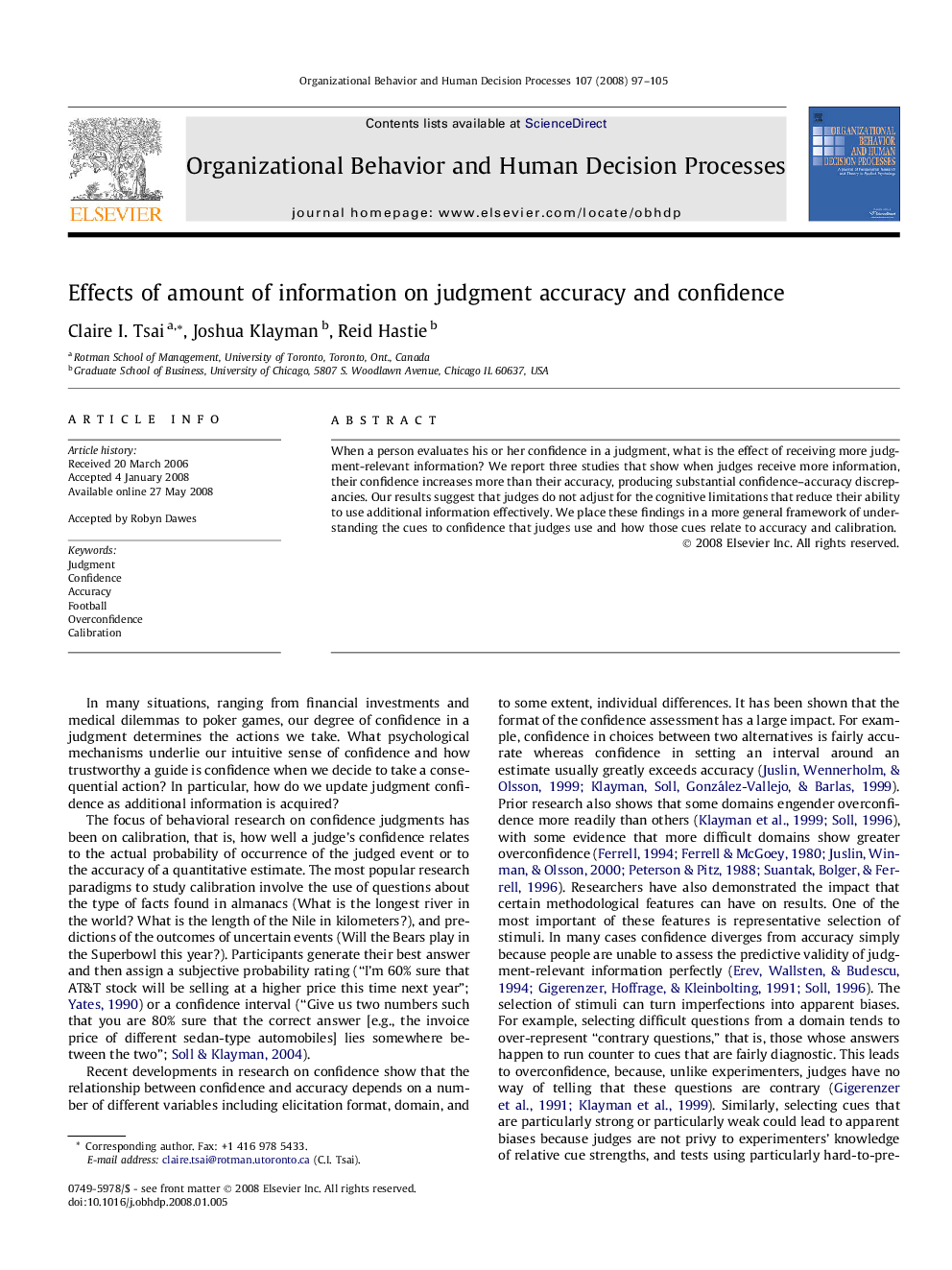| Article ID | Journal | Published Year | Pages | File Type |
|---|---|---|---|---|
| 888910 | Organizational Behavior and Human Decision Processes | 2008 | 9 Pages |
Abstract
When a person evaluates his or her confidence in a judgment, what is the effect of receiving more judgment-relevant information? We report three studies that show when judges receive more information, their confidence increases more than their accuracy, producing substantial confidence–accuracy discrepancies. Our results suggest that judges do not adjust for the cognitive limitations that reduce their ability to use additional information effectively. We place these findings in a more general framework of understanding the cues to confidence that judges use and how those cues relate to accuracy and calibration.
Related Topics
Social Sciences and Humanities
Business, Management and Accounting
Marketing
Authors
Claire I. Tsai, Joshua Klayman, Reid Hastie,
